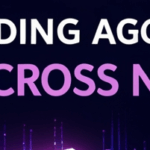In this article, I will discuss the Best Crypto For Institutional Investors.
Choosing appropriate assets is vital for institutions who are starting to penetrate the crypto landscape so as to maximize returns and minimize risks.
We will discuss the top possible options that would suit institutions which require higher liquidity, regulatory compliance and stability such factors are important for a scalable investment approach.
Key Point & Best Crypto For Institutional Investors List
| Cryptocurrency | Key Points |
|---|---|
| Bitcoin (BTC) | The first and most well-known cryptocurrency, a decentralized digital currency with limited supply. |
| Ethereum (ETH) | A blockchain platform for decentralized applications and smart contracts, with its own cryptocurrency. |
| Solana (SOL) | Known for its fast transaction speeds and low fees, aiming to scale decentralized applications. |
| Binance Coin (BNB) | Native coin of Binance exchange, used for trading fee discounts and various other use cases. |
| Cardano (ADA) | A proof-of-stake blockchain focusing on scalability, sustainability, and peer-reviewed research. |
| Polkadot (DOT) | A multi-chain network that allows different blockchains to communicate and work together. |
| Litecoin (LTC) | A peer-to-peer cryptocurrency known for its fast transaction times and lower fees compared to Bitcoin. |
| Chainlink (LINK) | A decentralized oracle network that connects smart contracts with real-world data. |
| Algorand (ALGO) | A scalable blockchain platform designed for fast and secure transactions with minimal environmental impact. |
| Ripple (XRP) | A digital payment protocol and cryptocurrency focused on fast, low-cost cross-border payments. |
10 Best Crypto For Institutional Investors
1.Bitcoin (BTC)
When it comes to institutional investing, Bitcoin (BTC) has solidified its dominance over other cryptocurrencies with its unparalleled security and popularity.

Bitcoin stands as the first crypto currency to ever exist, which makes it that much popular, thus being a safe place to invest in.
It has a great potential in mesmerizing investors due to its limited availability and decentralized existence, making it favorable for long-term investments for institutions wanting to diversify their portfolios.
Fees:
- Transaction Fees: It’s often around $0.0002 for a single transaction but can slightly vary.
Support:
- Customer Support: The webpage of Bitcoin has a range of resources to help customers such as FAQs, tutorial videos, and developer documentation.
- Community Support: The community is always up to date and the forums are open at all times.
Key Features:
- High Security: The transactions made on this platform are protected by cryptographic means.
- Decentralization: The authority to operate lies solely in a peer-to-peer network.
- Limited Supply: There can only be a maximum of 21 million coins which inherently encourages scarcity.
2.Ethereum (ETH)
Ethereum rightly earns a spot as one of the top picks for institutional investors because of its powerful blockchain that allows smart contracts and decentralized applications.

When thinking of new developments in finance, supply chains or gaming, Ethereum has plenty to offer.
In addition, its various developer community, growth potential due to improvements (for instance Ethereum 2.0), and most importantly the interest in decentralized financial (DeFi) solutions make Ethereum a good investment to the institutions as well.
Fees:
- Transaction Fees: Also known as ‘gas fees’ these tend to be more than that of Bitcoin, but Ethereum’s tend to be on the higher end which is dependent on the demand of the network.
Support:
- Customer Support: The Ethereum website provides a wealth of information from FAQs to ‘How to’ articles to even guides for developers.
- Community Support: There are forums as well as the community constantly updating everyone related to Ethereum.
Key Features:
- Smart contracts: Developers are able to make use of these to make dApps which are applications on the blockchain.
- Decentralization: There is no need for a central authority as there are computers spread all over the globe that are a part of the network.
- Range of uses: The range is massive as Ethereum is compatible for DeFi, NFTs and much more.
3.Solana (SOL)
Due to its affordable and quick blockchain that allows for speedy and scalable decentralized applications, Solana (SOL) is making some headlines in the institutional investor world.

It is known for having the ability to facilitate numerous transactions and within a short period, I think it is easy to see the potential growth in finance, NFTs and Web3.
In addition to that, it boasts a robust developer community, meaning it can assimilate massively so institutions looking for efficient and modern blockchain solutions with high capacity will for sure find it attractive.
Fees:
- Cost per Transaction: Extremely cost-effective, siting at an astonishing $0.0002 for every transaction.
Support:
- Help getting Started: In depth literature including FAQ’s, tutorials and developer handbooks are available on the Solana website.
- Community Help: Active forums along with news posted from the Solana community on a regular basis.
Key Features:
- Number Of Transactions: High level of performance (%) with transactions of Solana being settled in a mere 3-5 seconds.
- Transaction throughput: Capable of handling up to 1,000 transactions per second.
- Open Permissioned ledger: Solana is non-private and has no restrictions being a blockchain.
4.Binance Coin (BNB)
Due to Binance, BNB has become one of the top investments for institutions as one of the top crypto capability platforms.

BNB can be used in multiple ways including trading cost discount, staking, and joining in the projects on Binance Launchpad.
It has an excellent use in the Binance ecosystem and also regularly raises events meant to burn coins which makes BNB extremely suitable for institutions that would like to invest in the simply shorted crypto market
Fees:
- Transaction Fees: Users opting to pay for fees with BNB on the Binance Exchange are eligible for a discount on trading fees.
Support:
- Customer Support: For those using the BNB ecosystem, the Binance website offers a large array of support content including FAQs, tutorials, and developer documentation.
- Community Support: A forum with many active members was also created, as well as community updates from Binance regularly.
Key Features:
- Utility Token: Apart from being a trading currency on the Binance Exchange, it can be used to settle fees.
- Ecosystem Integration: Drives the Binance Chain and Binance smart chain ecosystem.
- Tokenomics: The supply of BNB tokens is decreased to create scarcity through a regular quarterly burn of tokens.
5.Cardano (ADA)
The development team behind Cardano is known for their commitment to researching, developing, peer-reviewing, and updating all thet changes which are to be introduced within the ecosystem of the cryptocurrency.

This fundamentally differentiates ADA from so many other crypto assets it is not announcing something ambitious unless it does mean to deliver.
This means that the emphasis on the science behind the development of the asset and the urgent need to protect the environment must not be just, but cardinally unchangeable principles of the asset’s development.
Fees:
- Transaction Fees: Referred to as “gas fees,” they are usually lower than ethereum but depend on the network activity.
Support:
- Customer Support: Based on the overwhelming amount of support tools present on the Cardano website such as FAQs, guides for developers, writers tutorials etc., support is bound to be satisfying.
- Community Support: The developers work together with forum members and make numerous active posts within the Cardano ecosystem.
Key Features:
- Proof of Delegated Stake: Cardano is built on the Proof of Delegated Stake model and employs the Ouroboros protocol which is both energy-saving and secure.
- Smart Contracts: Gives developers the ability to build dApps (decentralized applications) and write smart contracts.
- Scalability: The architecture was built with the intention of being able to support a vast number of transactions in seconds.
6.Polkadot (DOT)
Due to its unique multi-chain structure that enables compatibility between different blockchains, Polkadot (DOT) emerges as a very appealing cryptocurrency for institutional investors.

Polkadot’s unique features make it ideal for cross-chain applications and other decentralized finance (DeFi) related projects.
Looking at Polkadot’s emphasis on enhancing blockchain interoperability and security, it offers investors access to a developing ecosystem, making it a foundational element in the evolving world of decentralization.
Fees:
- Financial costs are significantly lower which if compared with existing global banking systems.
Support:
- Excellent support from the users by constant revision of the software and ecosystem management.
Key Features:
- Interoperability: Link several blockchain platforms (ie. parachains) together.
- Scalability: Allows a great number of transactions to take place.
- Security: Security is decentralized and shared among many parachains.
7.Litecoin (LTC)
Litecoin (LTC) has successfully established itself as a fast, secure and inexpensive cryptocurrency which is the main reason why it is a great investment option for institutional investors.

It is considered as Bitcoin’s silver and it facilitates efficient transactions with lower costs and fast processing.
Given its security, time spent in the market, significant use, and wide reach, it provides businesses with opportunities for consistent growth and investment in a more dependable and scalable digital asset within the cryptocurrency industry.
Fees:
- Transaction Expenses: A mere $0.0002 spent per transaction.
Support:
- Customer assistance: Numerous mediums available on Litecoins webpage consisting of FAQ’s, tutorials or even developer apprenticeship.
- Community Support: Active forums and regular newsletter updates keep the active members updated with every new development.
Key Features:
- High Performance: Average settling time for transactions is around 2.5 minutes.
- Scalability: Consistently able to handle a high throughput of transactions per second.
- Decentralization: Structure enables salt Lake to run on peer networks devoid of the need of an entrenched authority.
8.Chainlink (LINK)
Chainlink LINK has become one of the favorite cryptocurrencies for institutional investors owing to its position as a decentralized oracle network that connects smart contracts to real world data.

Such integration perfectly meets the growing demand for reliable and live data with the increase in blockchain technology, hence making Chainlink a vital piece of infrastructure.
Moreover, LINK is an asset to be held in institutional portfolios owing to its strong ties and partnership with large enterprises and primary networks for decentralized finance DeFi ecosystems and many applications that are based off the blockchain.
Fees:
- Transaction Fees: They’re medium but could go either way depending on the demand on the network.
Support:
- Customer Support: There are tons of material offered on the Chainlink site including but not limited to: faqs, how-to’s, and guides for developers.
- Community Support: There are inactive forums alongside updates from the Chainlink community frequently.
Key Features:
- Decentralized Oracles: Guarantees reliable data feeds for the smart contracts.
- Interoperability: Facilitates a bridge between different blockchains and off-chain data sources.
- Security: Events adoption of a decentralized network in ensuring that data is accurate and reliable.
9.Algorand (ALGO)
Algorand (ALGO) maintains a high attractiveness for institutional investors as it is quick, cost-efficient, plus it is highly scalable.
Its energy usage is efficient because it employs a distinctive proof-of-stake mechanism.

Algorand’s sole objective in the crypto space is focused on the decentralized finance (DeFi) and enterprise sectors which promise excellent growth prospects.
By continuously expanding its ecosystem and forming partnerships in various industries, Algorand has turned out to be a great investment for companies aiming at a robust and sustainable blockchain technology with long-term benefits.
Fees:
- Transaction Fees: Low fees around 0.0002 USD.
Support:
- Customer Support: Algorand has an impressive amount of support which consists of tutorials, a question and answers section, and a website for developers.
- Community Support: There are frequent posts and news releases from the Algorand community.
Key Features:
- Proof-of-Stake: Utilizes the Ouroboros protocol which is powerful yet efficient.
- Smart Contracts: Developers are provided with the opportunity to design dApps and smart contracts.
- Scalability: Capable of processing hundreds of thousands of transactions every second.
10.Ripple (XRP)
Ripple (XRP) is perhaps the fastest focusing cryptocurrencies in the remittance sector.

It is xrp that has formed partnerships with large financial institutions and payment providers thus placing Little Ripple at the core of the global remittances market and making it an ideal investment for companies looking to restructure the international payment market.
The cryptocurrency allows institutions to optimize the transfer of money across borders in real time which makes it an attractive investment as well.
Fees:
- Transaction Fees: Very cheap, amounting to approximately $0.0002 for every processed transaction.
Support:
- Customer Support: This company has broad assistance that is provided on the webpage, such as FAQs, how-to guides and developers assistance.
- Community Support: Provides access to active community forums and frequent news updates from the Ripple.
Key Features:
- Fast transactions: Transactions are confirmed within 3 to 5 seconds.
- Supports sustenance per second: Up to 1,500 transactions can be processed in a single second.
- Xrp ledger: Renders xrp decentralized and uses a ledger which is permission-less.
How To Choose Best Crypto For Institutional Investors
Market Depth: Always verify that the cryptocurrency has a high, liquid market so that the buying and selling process is smooth without notable price shifts.
Technological and Scalable Features: Look out for cryptocurrencies that possess strong and ample block chain technology that allows transacting in high volumes and expands in the future.
Safe and Reliable Assets: It is prudent to select assets whose security has a history of performance, whose governance is transparent, and whose consensus methods are powerful.
Growth and Adoption of the Currency: Cryptos that are adopted by businesses in real life that engage in cross border payments or even in the DeFi sector should also be considered.
Legal or Regulatory Issues: Always check where the legal standing of the crypto is in and its compatibility with the institution so as to avoid legal hurdles.
Community Building and Growth of Ecosystem: If a project has a strong developer community along with a strong ecosystem then that further increases the long term security along with enhancement of a currency.
Stability of Asset and Risks Involved: The higher the volatility of an asset over time the higher the returns, but that does need to sit within the institutional risk parameters.
Conclusion
To sum it up, doing an institutional investment entails spending time considering things like regulation, security, technology, and the potential for increased market demand.
Cryptos like Bitcoin, Ethereum, and Solana already bear proven potential; those that are newly utilized assets such as Polkadot and Chainlink can be strong in the future.
For institutions, having a sound understanding of the point discussed above can go a long way to make well-informed decisions to diversify portfolios so as to grow the Digital assets market.










